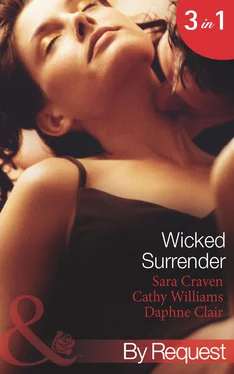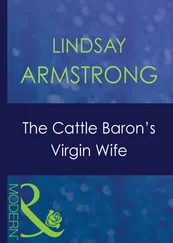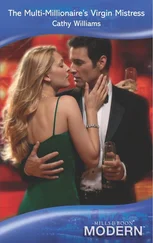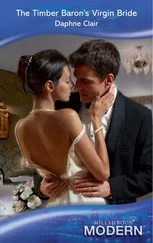‘On the contrary,’ Diaz said. ‘I found her in the cove, like a sea urchin on a rock, and she’s been excellent company. So much so that, with your permission, I’d like to take her out to dinner to celebrate her birthday.’
He paused, and the older woman gazed at him open-mouthed, her face warming with undisguised annoyance.
‘Unless you have something else planned, of course,’ he added smoothly. ‘No? I thought not.’ He turned to Rhianna, who was also staring at him, dumbfounded and totally lost for words, but with an odd little tendril of disbelieving joy unfurling inside her too.
‘Wash your face, sea urchin,’ he directed. ‘And I’ll be back around six-thirty to collect you.’
Kezia Trewint found her voice. ‘Mr Penvarnon, this is nonsense. There’s absolutely no need for you to go to all this trouble…’
‘Now, there we disagree.’ His smile held charm, but it was also inexorable, and Rhianna felt a faint shiver between her shoulderblades. ‘So—six-thirty. Don’t be late.’ And he was gone.
Alone in the moonlight, Rhianna let herself remember…
Aunt Kezia, of course, had not bothered to disguise her anger and bitterness at this turn of events.
‘Barely out of childhood, and already throwing yourself at a man.’ She chewed at the words and spat them out. ‘And a Penvarnon man at that. The shame of it. And he must have taken leave of his senses.’
‘I didn’t throw myself,’ Rhianna protested. ‘He felt sorry for me and was kind. That’s all.’
‘Because you told him the suffering orphan tale, I suppose? All big eyes and no bread in the house.’ Miss Trewint scrubbed at the paintwork as if determined to reach the bare wood beneath it. ‘And what will Mrs Seymour have to say when she hears? We’ll be lucky to keep our place here.’
Rhianna stared at her. ‘Mr Penvarnon wouldn’t let us be sent away—not for something he’d done,’ she protested.
‘So you think you know him that well, do you?’ Miss Trewint gave a harsh laugh. ‘Well—like mother, like daughter. I should have known.’ She paused. ‘You’d better get ready, if you’re going. You can’t keep him waiting.’
Rhianna went up to the flat. Whatever Aunt Kezia said, she thought rebelliously, she wasn’t going to allow it to spoil the evening ahead—the prospect of being taken out to dinner as if she was grown-up.
But she couldn’t entirely dismiss the older woman’s unpleasant remarks, especially when she recalled Carrie’s reluctant confidences.
She knew in her heart that Grace Carlow had been a good and loving person, and that she couldn’t have—wouldn’t have—done anything wrong. All the same there was a mystery there, and one day she would get to the bottom of it and clear her mother’s name.
But common sense told her that she must wait until she was older for her questions to be taken seriously.
She had a quick bath and washed her hair, being careful not to use too much hot water, while she mused on what to wear.
She would have given anything to have a cupboard full of the kind of clothes her classmates wore outside school, at the weekends and at holiday times, she thought wistfully, but her aunt considered serviceable shorts and tee shirts, with a pair of jeans for cooler days, an adequate wardrobe for her. And she couldn’t even contemplate what Kezia Trewint would have said about the make-up and jewellery the other girls took for granted.
Which only left her school uniform dresses, still relatively new, full-skirted and square necked in pale blue.
Sighing, she put one of them on, slipped her feet into her black regulation shoes, brushed her cloud of hair into relative submission and went downstairs to wait for him.
He was a few minutes late, and for a stricken moment she wondered if he’d had second thoughts. Then he came striding across the stable yard with a set look to his mouth which suggested that Moira Seymour might indeed have had something to say about his plan.
But his face relaxed when he saw her, and he said, ‘You’re looking good, Miss Carlow. Shall we go?’
His car was wonderful, low, sleek and clearly powerful, but he kept its power strictly harnessed as he negotiated the narrow high-hedged lanes leading out of Polkernick with a sure touch.
It wasn’t a long journey—just a few miles down the coast to another village built on a steep hill overlooking a harbour. The restaurant was right on the quay, occupying the upper storey of a large wooden building like a boathouse, and reached by an outside staircase.
Inside, it was equally unpretentious, with plain wooden tables and chairs, and the menu and wine list chalked up on blackboards.
There were quite a few people eating already, but a table for two had been reserved by the window with a view of the harbour, and a girl in tee shirt and jeans came to light the little lamp in its glass shade which stood in middle of the table, and take their order for drinks.
A combination of excitement and her crying jag had made Rhianna thirsty, and she asked shyly for water.
‘Bring a jug for both of us, please, Bethan. Ice, but no lemon,’ Diaz directed. ‘And just a half-bottle of the Chablis I had last time.’
He smiled at Rhianna. ‘It’s a seafood place,’ he said. ‘I suppose I should have asked if you like fish.’
‘I like everything,’ she said simply, adding, ‘Except tripe.’
‘That’s not a taste I’ve acquired either.’ He paused. ‘Ever had lobster?’
Mutely, she shook her head.
‘Then that’s what we’ll have,’ he said.
And so they did—plain and grilled, with a tossed green salad, a bowl of tiny sauté potatoes, and a platter of fresh, crusty bread. It was preceded by a delicate shrimp mousse, and when the wine came Diaz poured a very small amount into another glass and handed it to her.
‘To Rhianna,’ he said, raising his own glass. ‘On her birthday.’
She sipped the wine carefully, and thought it was like tasting sunshine and flowers.
Her pudding was a raspberry tartlet with clotted cream, carried ceremoniously to the table by a stout man with a large apron over his blue check trousers who, Diaz told her, was the owner and chef, Morris Trencro. In the middle was a tiny ornamental holder, with a lighted candle for her to make a wish, then blow out.
‘No room for the proper thirteen, maiden,’ Mr Trencro said. ‘But reckon you won’t mind that.’
What was more, he began singing ‘Happy Birthday,’ in a strong baritone, and at his signal the rest of the customers joined in, turning to smile at this young red-haired girl whose eyes were shining more brightly than any candle flame.
And then they’d driven home, as decorously as they’d come.
There had been a moon that night too, thought Rhianna, and Diaz had put quiet, beautiful music—Debussy, she thought—on the CD player. And what with that, all the gorgeous food and that little drop of wine, she’d had to fight to stay awake, because she didn’t want to miss a single moment of her heavenly evening.
Of course, there had been repercussions later, she recalled wryly. Not from Aunt Kezia, oddly enough, although that was probably due to the brief, private interview Diaz had had with her in the sitting room after he’d brought her home.
But Moira Seymour had seemed to develop another layer of ice whenever she saw her.
And worst of all, she thought, was when she’d returned to school in September and found herself the object of unwanted and unwarranted attention from some of the older girls.
‘My sister Bethan saw you at the Boathouse in Garzion with Diaz Penvarnon,’ Lynn Dellow had announced, looking Rhianna up and down. ‘She says he was making a big fuss about your birthday, and pouring wine down you. She says you were wearing your yucky school dress and looked a proper sight.’ She giggled. ‘I thought Mr Penvarnon liked ladies his own age, not little schoolgirls.’
Читать дальше












